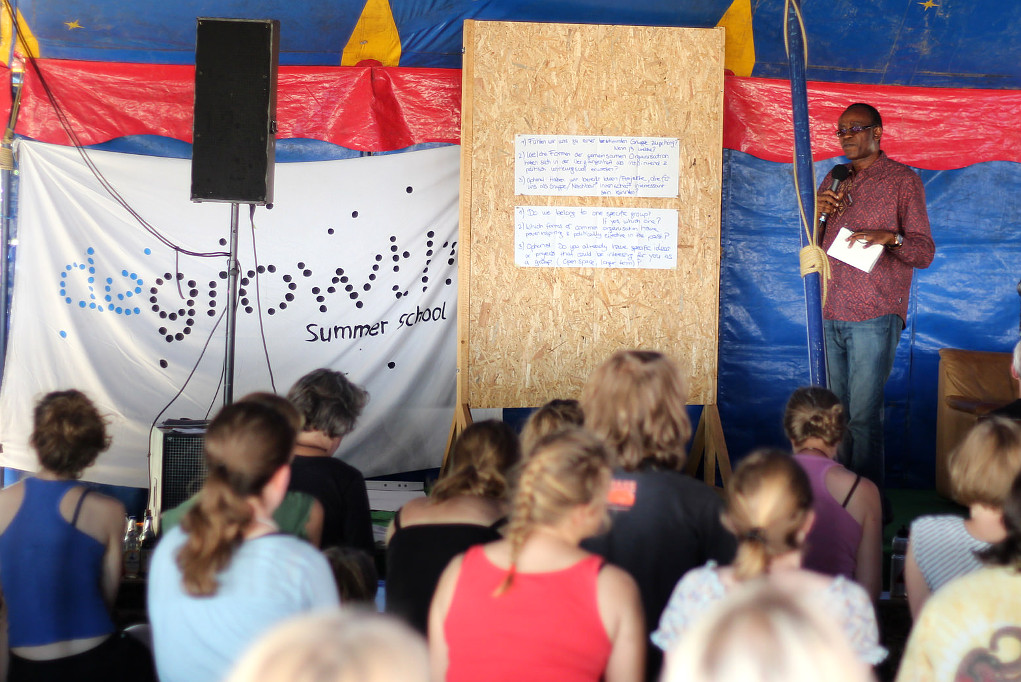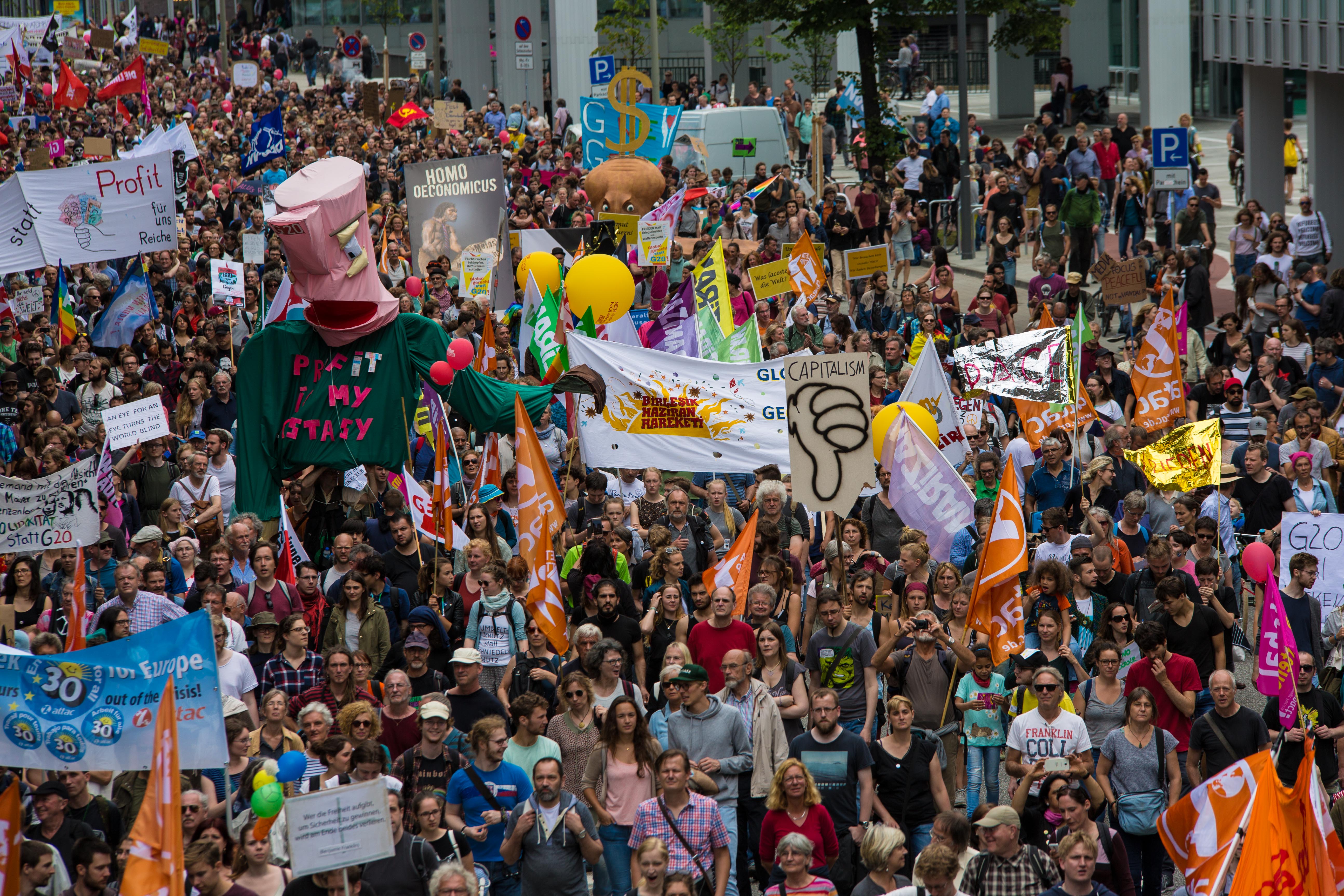The future of economic growth is one of the decisive challenges of the twenty-first century. Though beginning at different times in different places, during the last two centuries, overall global economic growth has profoundly transformed life of humans and of the rest of nature. Today, societies, economies, and cultures are essentially built on the expectation of continuing future growth. However, given the exceptional and non-reproducible circumstances that have given rise to the unprecedented economic expansion of recent history, one thing seems clear: Irrespective of contrary local or regional developments, future growth rates on a global scale will be nowhere near where they had been in the recent past. Instead, economic growth will diminish and, presumably, eventually come to an end.
This setting seems reason enough to explore the implications of this exceptional period: the reasons, consequences and limitations of economic growth as a form of perceived normalcy. How did humanity come to develop this dependence on a growth-centered economy? What is the significance of economic growth in current societies? And what possible alternatives are there and how have they historically evolved? These, among others, are the questions addressed in The History of the Future of Growth.
For a long time, economic growth has drawn its legitimacy from its promise of providing the means for both improvements of individual living conditions and social progress. This may explain why the idea of continuing economic growth has been broadly endorsed, readily taken for granted and rarely questioned. The concept proved attractive in high-income countries that had already experienced substantial economic growth, as well as low-income countries where people were hoping and felt entitled to share the benefits of increased income in the future.
However, the advantages of economic growth have always come at a social and/or environmental price, giving rise to concerns repeatedly articulated on the fringes of academia and society. Recently, as prospects for future growth seem bleaker than in the past, critical discussions about the future or possible end of economic growth have gained strength and are beginning to spread into the mainstream of public discussions. In the process, the debate makes use of historical arguments, making claims about alleged past records and their meaning for the future. Nonethelesse these claims frequently remain unreflected and untested against a body of studies on often very complex phenomena and their short- and long-term causes and effects. Even though historical knowledge would clearly benefit the debate, up to now, historians have been curiously absent from it. This volume is an attempt to add historians’ voices to considerations about the nature of challenges ahead, about the historical developments leading up to these challenges, and about the degree to which past experience can or cannot serve as orientation for the future.
The idea for this book goes back to a special session at the Fourth International Degrowth Conference for Ecological Sustainability and Social Equity which took place in Leipzig in September 2014. Entitled “Degrowth and History – Economics, Sustainability, Power,” the session aimed at introducing a historical perspective into the burgeoning research field on sustainability, no-growth alternatives, and degrowth, and opening up a new research agenda for ecological, cultural, social, and economic history. History never really repeats itself and the future cannot be a simple continuation of the past. This volume argues that today, in the second decade of the twenty-first century, this truism is more true than usual.
Addressing different aspects of the history of economic growth as a central and near-ubiquitous tenet of developmental strategies, the eight original contributions in this volume add fresh perspectives on various aspects of these ongoing debates. They aim at historicizing seemingly self-evident aspects of growth and provide a critical analysis of mainly two issues: the conceptual evolution of the idea and the tangible reality of growth, and of the ways growth has affected the lives of populations at different times and places.
The contributions follow three different avenues of enquiry: five papers (Dale, Fressoz/Bonneuil, Westermann, Macekura, Fioramonti) take a deconstructivist approach that focuses on understanding the origins of the growth paradigm and growth-oriented policies, societies, and cultures; one paper (Borowy) focuses on the practical experience of growth and its real-life repercussions; and two papers (Caradonna, Muraca/Schmelzer) study alternatives to the growth paradigm. This uneven distribution of approaches with a clear dominance of conceptual questions was not originally intended, but resulted from successes and failures in our search for authors.
While we initially regretted this imbalance of focus, we have come to accept it as a sign of where the historical discourse on matters related to economic growth presently stands. As an increasing awareness of the unsustainability of the existing growth paradigm is competing with a continuing political commitment to growth – or an unwillingness to embrace a promising but untested and unpredictable alternative – the focus of historical research evidently lies on deconstructing this concept. By recapitulating its genesis, historians analyze which narrative structures or knowledge systems about the economy and processes of growth were produced at different times and in different social or geographical spaces.

Interview mit Nina Treu Wenige Tage vor Beginn der Degrowth-Sommerschule im Rheinland hat die Stiftung für Umwelt und Entwicklung Nordrhein-Westfalen die Förderung eingestellt. Nina Treu vom Konzeptwerk Neue Ökonomie über die Begründung der Stiftung, was das politisch bedeutet und wie es jetzt weitergeht. Nur zehn Tage vor Beginn der Sommerschule hat die Stiftung für Umwelt und Entwic...

Was tun, wenn sich die Staats- und Regierungschefs der 20 reichsten Länder der Welt in einer europäischen Großstadt einfinden, um ihre ungerechte Politik in Szene zu setzen? Dieser Frage haben sich zahlreiche linke Organisationen seit letztem Jahr gewidmet. Herausgekommen ist eine bunte Mischung an Protestformen, verteilt über eine Woche. Leider geht die Debatte um den G20-Gipfel aktuell weder ...
From our project "Degrowth in Movement(s)" The multiple crises that humanity is facing are becoming increasingly visible: in the form of disasters related to ecological damage, the stark inequalities between a tiny minority of ultra-rich and the vast numbers of desperately poor, the health epidemics related to both deprivation and affluence, mass refugee migrations in many parts of the world, ...